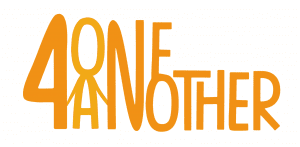Between January and June 2019 , 8,236 children arrived in Greece, Spain, Italy and Bulgaria, of whom 2,794 (34%) were unaccompanied or separated children (UASC); According to the annual Report on Children in Migration published by the EU Agency for fundamental rights (FRA), in 2019, about 33,000 children, including over 5,000 who were unaccompanied reached EU’s external land or sea borders.
Some countries, like Greece, Italy and Spain received significantly more children than others, highlighting the urgent need of ensuring a proper reception system to this specific target.
Reception capacity for all asylum applicants, particularly for unaccompanied children who have special protection needs, resulted to be insufficient.
Children in migration are more vulnerable than adults, particularly when they are unaccompanied. Upon turning 18, unaccompanied asylum-seeking children face particular challenges, as they often have to leave their child-specific accommodation and experience a significant reduction in social support. The significant presence of UASC and the growing number of UASC who have turned 18 (around 60,000 over the last five years) have highlighted the need to better understand the measures and opportunities for the protection and social inclusion of this specific population group in their transition to adulthood.
To provide UASC and youth with the necessary tools for achieving a successful life and work towards their integration, it’s crucial the role of professionals working mainly in reception centers: cultural mediator and social workers are the first close relationship UASC tide with, they are a strong reference point for their legal and social integration process and it results thus important they have the best skills and competences to support and respond to UASC specific needs.
Social workers, mediators, psychologists have to face several challenges arising with the work with UASC, in consideration of the variety of topic to be taken into consideration, such as: national and international legal framework, knowledge of the migration context, psychological condition, medical issue, social and cultural background…
To address the needs and gaps of knowledge and skills of professionals, the consortium wants to develop a training program whose objective is to offer the professionals the right tools to:
- Support the integration process (legal barriers, administrative challenges).
- Fill the gaps in professionals’ skills and competences in foster/alternative.
- Providing psychosocial support (traumas, stress…), including the capacity to detect early sign of distress.
- Support in a successful acculturation and integration process.
- Support in the ransition to adulthood and in their path toward independence: housing, job, education.
- Support in finding and choosing education path and learning opportunities.
- Informing the surrounding population to facilitate the inclusion of the UASC through promoting communication and awareness campaigns, to dismantle the prejudices and fears that exist around them, which contribute to discourage their acceptance into society.

